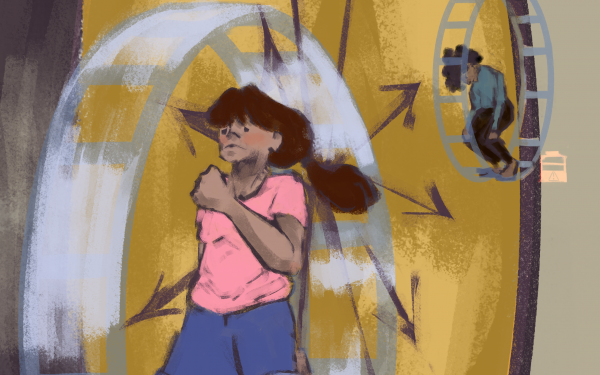I’m Just Saying: There’s more to life than the past
Is pop culture’s love for recycling old trends stifling new creativity?
It seems like every new fashion trend, movie or song nowadays is recycled from the past.
Whether it's a subtle sample or an outright movie remake, it’s almost impossible to engage with modern media without recognizing patterns from previous eras.
Are we holding onto the “good ol’ days” or have we run out of fresh ideas? Pop culture today is obsessed with the past.
Take music as an example; most songs use samples from earlier decades. Hollywood studios also continue to reboot classics like The Little Mermaid or my personal favourite, The Fantastic Four.
Similarly, fashion is caught in a time loop, with the Y2K revival reintroducing low-rise jeans and bedazzled accessories. Thrifting embraces nostalgia by giving pre-loved clothes a second life, whether they're vintage or just a few years old. Fashion brands have been capitalizing on this trend, producing clothes inspired by past decades at current prices.
As clinical psychologist Valentina Stoycheva explains, “Trauma [...] divides our timeline into a before and an after.” This sentiment is shared as I often find myself, during stressful moments, revisiting songs and movies I loved in my younger years—back when life felt simpler and far less overwhelming than it does now as an adult.
Moreover, nostalgia allows for reinterpretation. Films such as Barbie or the ‘90s spin off on the hit series That ‘70s Show demonstrate that remakes can refresh old stories to reflect contemporary values. They introduce younger audiences to cultural milestones they might have missed, maintaining a link between past and present. It helps bridge generations, making old content accessible to new audiences.
However, when every movie is a remake and every song is a sample, creativity is at risk of being overshadowed by the fear of venturing into uncharted territory. Pop culture, once a place of bold innovation, now feels like it’s stuck in a holding pattern. Even something on the more niche side like nu metal—a subgenre of metal that had its moment in the late ‘90s and early 2000s—is making a comeback. As much as I love bands like System of a Down and Limp Bizkit, it’s clear we’re running out of decades to re-explore when even the most ridiculed music genres find their way back into the spotlight.
Our overreliance on the past is making pop culture feel stagnant. Despite living in a digital age with seemingly endless possibilities, we continue to recycle the familiar. With rapid advancements in technology like AI and virtual reality, creators may feel overwhelmed, opting for safer choices instead of pushing boundaries.
The fast pace of media consumption and the pressure to produce quickly further stifles innovation, making it easier to reinvigorate the past than to create something new. While reboots and remakes offer predictability and financial security for movie studios, they often come at the expense of fresh creativity.
We’re at a crossroad. Pop culture must strike a balance between honouring the past and daring to create the new.
Will we keep recycling, or will we break free and push creativity forward? The potential is there, but the leap is ours to take.
This article originally appeared in Volume 45, Issue 3, published October 1, 2024.




_600_375_90_s_c1.jpg)
_1_600_375_90_s_c1.jpg)

